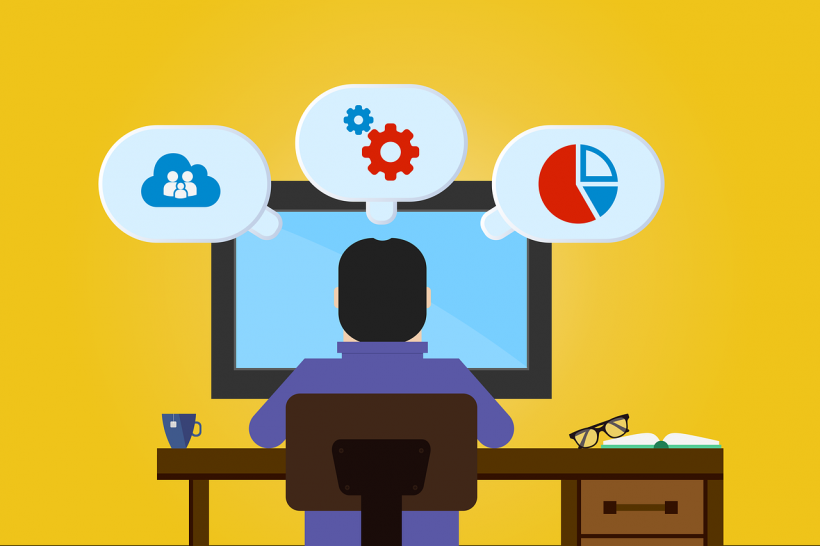Looking to learn a programming language? You might find it quite overwhelming to choose from the plethora of options available today. So in this article, I'm going to narrow the options down for you.
We'll take a closer look at some excellent object-oriented languages that are in demand today. First, though, let's go over the concept of such programming.
What Is Object-Oriented Programming?
Object-oriented programming is an approach that involves defining data structures as objects that can contain data and methods. This approach is well suited to large, complex applications that need to be updated frequently.
Fun fact: The first object-oriented programming language-Simula-was developed in the 1960s.
Since then, many languages have been developed based on the model. Most modern coding languages support the object-oriented paradigm and it's now viewed as the standard way to code.
Let's now look at the top such languages to learn in 2022.
The Top Object-Oriented Languages to Learn in 2022
Here are five of the most in-demand languages that support the paradigm and are definitely worth the effort of learning.
Java
Java is a popular, general-purpose language that has been around for decades. It follows the object-oriented model and can be used to build applications for a wide variety of platforms including desktop, web, and mobile.
Advantages of the language:
● Nice learning experience. Java has a simple syntax and is not a hassle to learn.
● Platform independence. Java was designed to be platform-independent, allowing developers to write code once and run it across different platforms.
● Enterprise development. It's very popular for building enterprise solutions.
● Speed. Java is faster than Python and Ruby.
● Big community. Java has a large online community which speaks of its popularity and demand.
Disadvantages:
● Java doesn't offer as great of a performance as C++, for instance.
Nevertheless, it's still a great language and one of the most in-demand skills in the software industry. You can master Java relatively quickly with the online CodeGym Java course, which features an engaging learning experience and over 1,200 coding tasks.
Python
Python is an open-source language with functional programming support. It's become one of the most widely used languages in recent years thanks to its flexible nature. It's also one of the more suitable languages for beginners.
Advantages of the language:
● Ease of use. Python is a popular language renowned for its versatility, ease, and speed of development.
● Good online community. It has a vibrant community that's open to helping you learn.
● Compatibility with scientific development. It's well suited to machine learning and data science applications.
Disadvantages:
● Since Python is an interpreted language, it's not the fastest one out there.
● Its memory consumption can be quite high, making it a poor choice for memory-intensive tasks.
Nevertheless, if you choose to learn Python today, you'll find lots of opportunities to leverage this versatile language.
Ruby
Ruby is an open-source programming language that is loved by many. It's often used in conjunction with the popular Ruby on Rails framework, which is a web development framework written in Ruby.
Advantages of the language:
● Good resources for development. Ruby has a lot of useful tools and libraries.
● Good community. Ruby has an active community of developers.
● Well suited for startups. Ruby is a great language for fast prototyping, making it a great choice for startups.
Disadvantages:
● Like Python, Ruby is an interpreted language, so it's slower than other compiled languages.
While Ruby isn't the most popular language in the job market, there's a strong demand for Ruby on Rails developers. Many well-known websites and applications such as Hulu, Airbnb, Github, and Homebrew are built on Ruby.
C++
C++ is a mature language that has been around for a long time. It was designed to support object-oriented programming as an extension of the C language with which it is completely compatible.
Advantages of the language:
● Powerful application development. C++ is an incredibly powerful language that can be used for low-level manipulation of operating systems and file systems.
● Good resources. It offers numerous libraries for code reuse.
● Good community. C++ has a large community that you can address for help.
● Speed. Unlike Python and Ruby, C++ is a compiled language and is therefore very fast.
Disadvantages:
● If you're new to coding, you might find some C++ concepts such as pointers and memory management difficult to grasp.
Go
Go, often called Golang, is an open-source language developed by Google. It's fast and it's ideal for building single-page web applications.
Go is a relatively new language being just over a decade old. Nevertheless, it has been adopted by thousands of software developers-for its capabilities and beginner-friendly learning curve-and businesses.
Advantages of the language:
● Powerful application development. It was designed for building highly performant, large-scale applications.
● The versatility of use. Go is a versatile language that can be used for building system infrastructures, web development, and data processing.
● Major platform support. It's supported by the major cloud platforms including Amazon Web Services, Microsoft Azure, and Google Cloud Platform.
Disadvantages:
● Go lacks generics, meaning that it won't be easy to reuse your code in the same app.
● You can see how an interface is implemented only after you compile the code which can be a hassle for large applications.
● Although Go also has a vibrant open-source community and Go developers are some of the highest-paid in the U.S., it's difficult to communicate with.
Conclusion
So there you have it: 5 excellent object-oriented programming languages you can learn today. Choose an option that will equip you to achieve your goals and get started on the rewarding journey of learning to code.
* This is a contributed article and this content does not necessarily represent the views of sciencetimes.com















